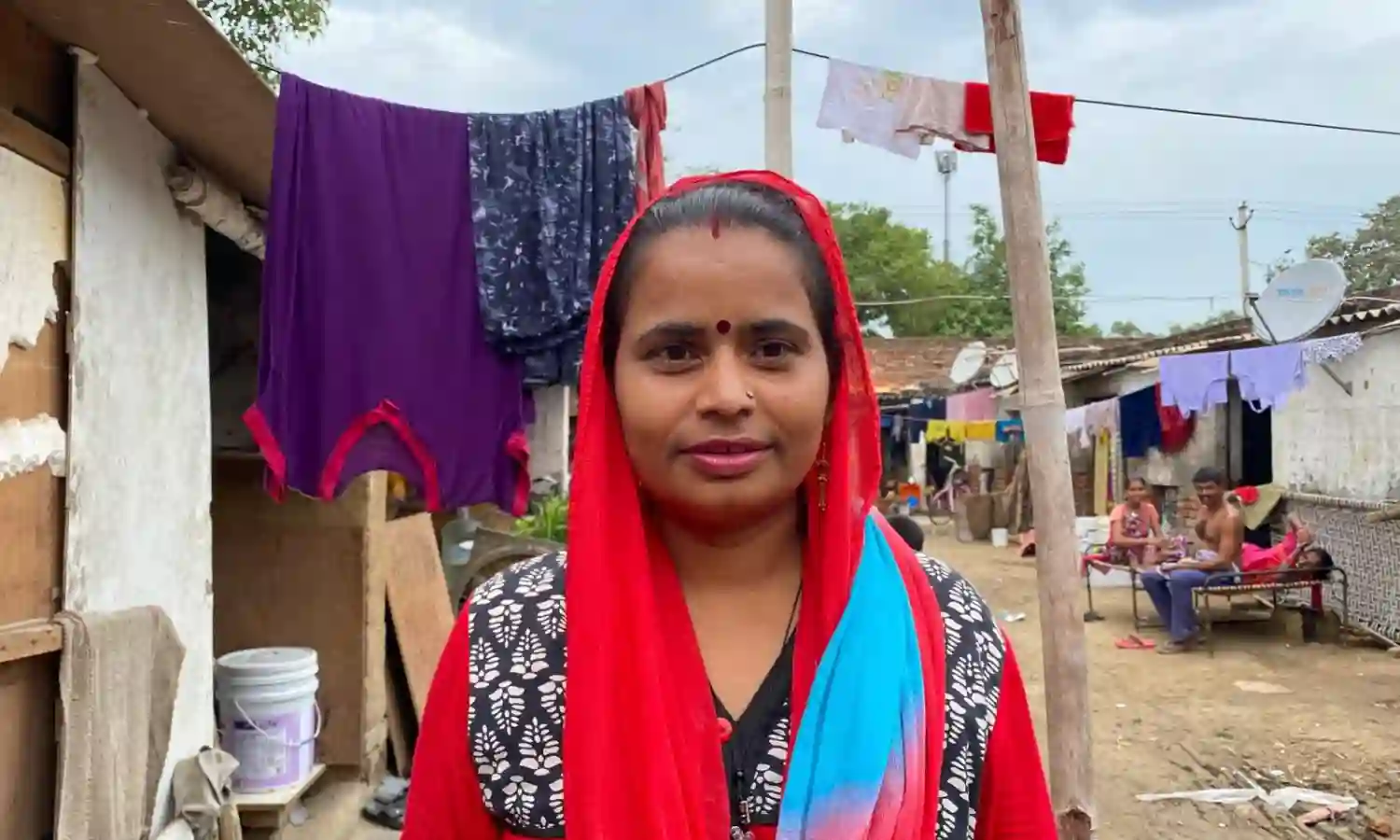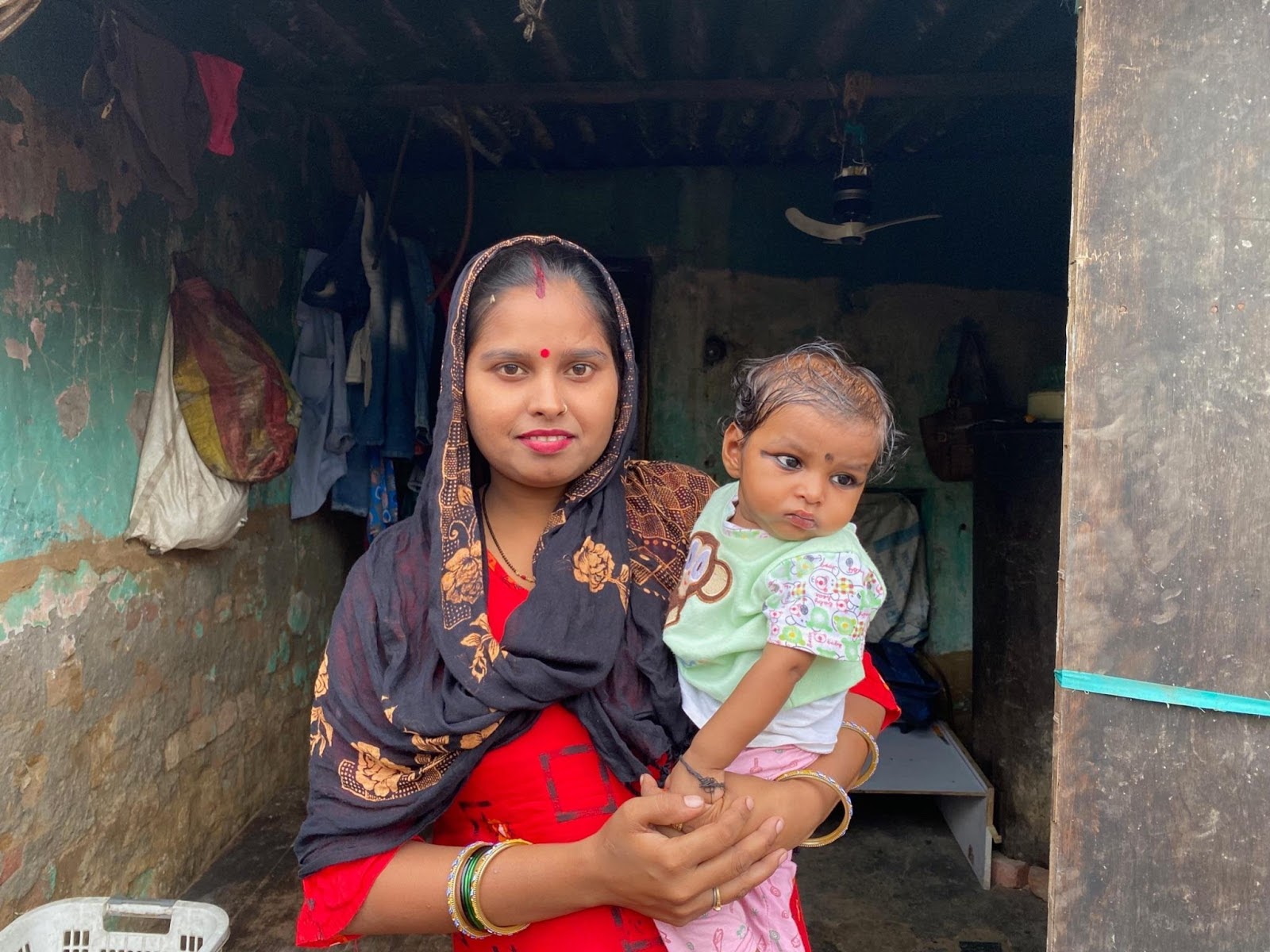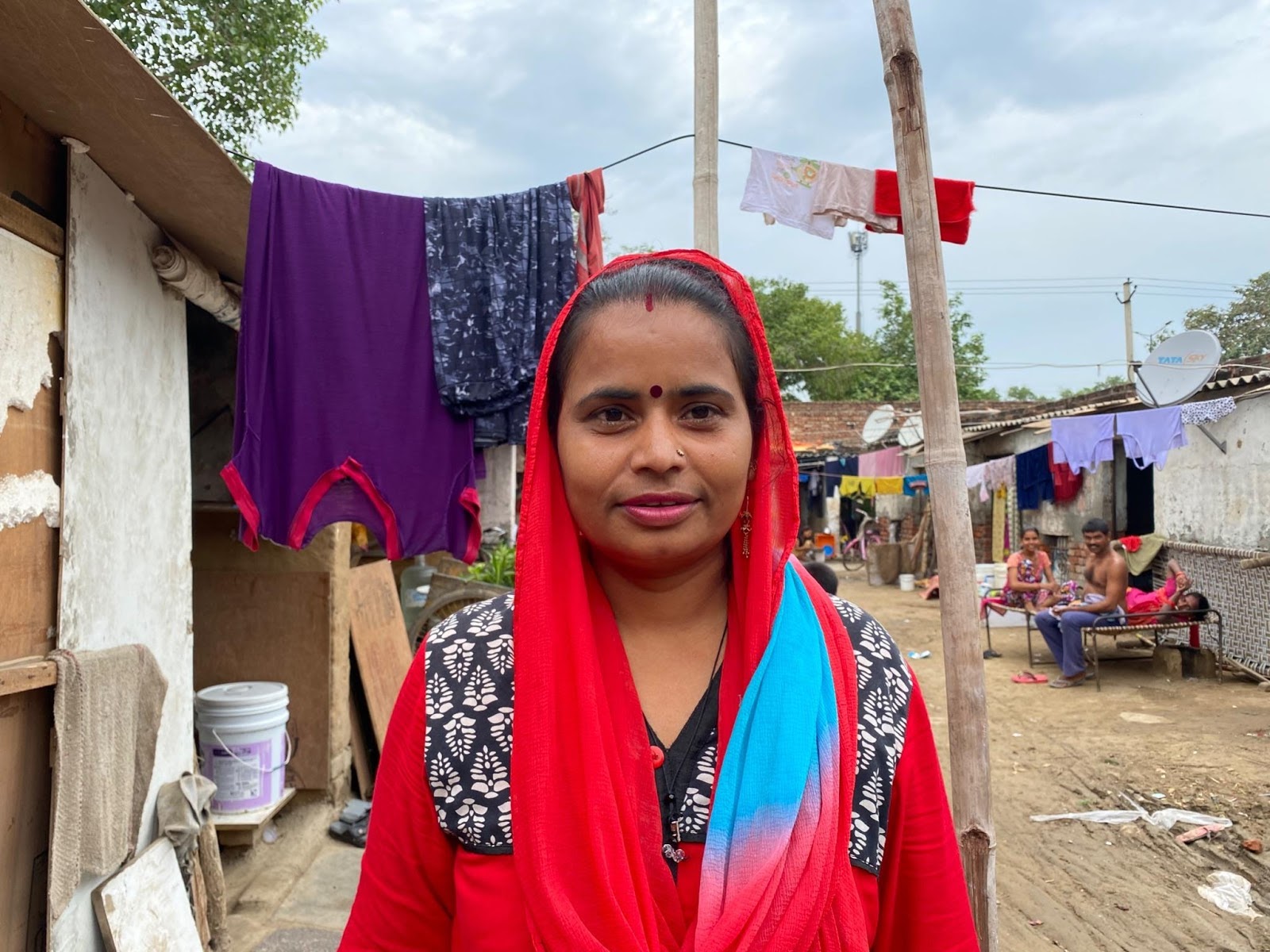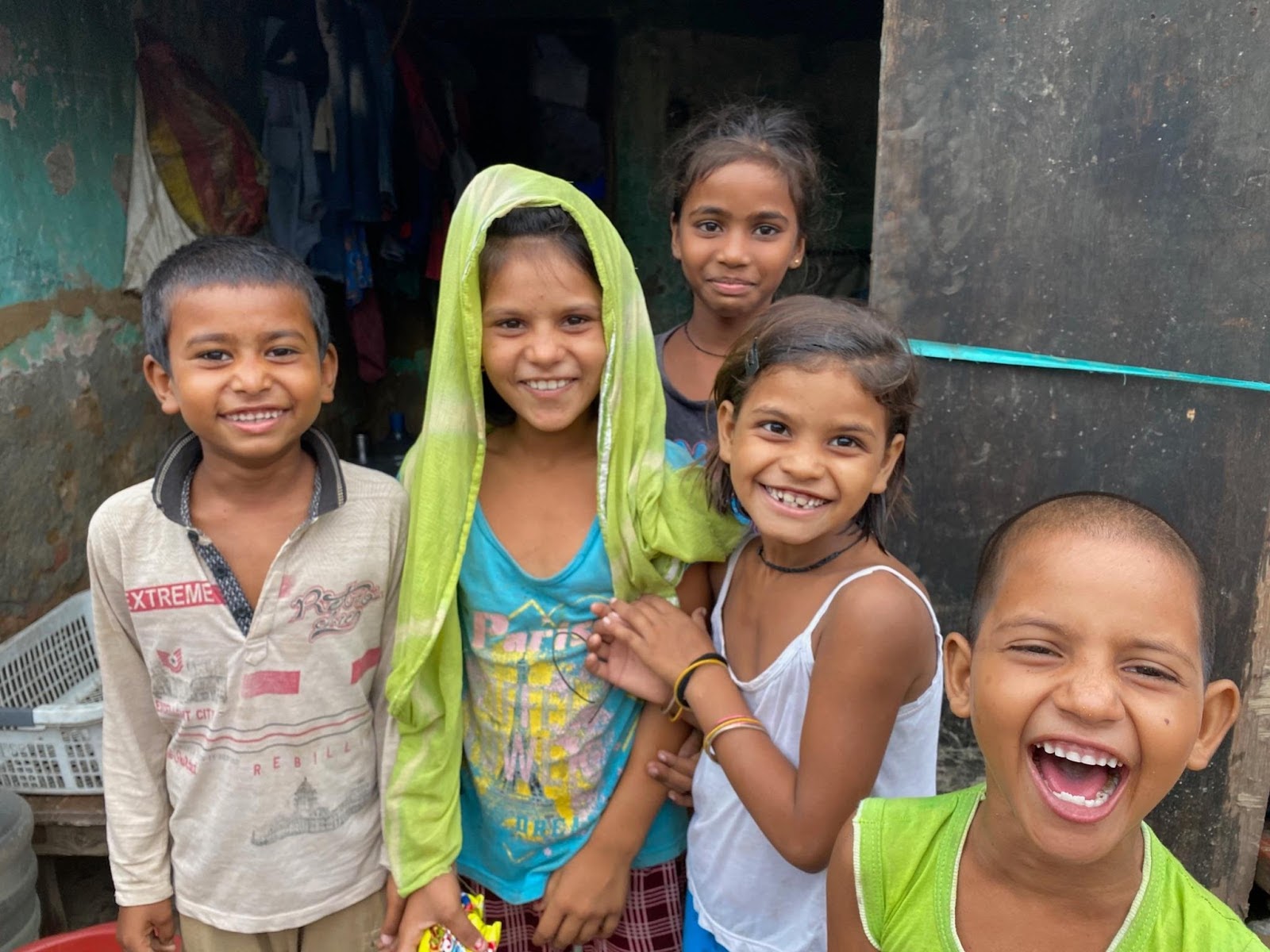The Visible Invisible - Delhi’s Domestic Workers Face Abuse and Neglect
“We have no respect.”

Suman, a 40 year old domestic worker from Haryana, spent all her money travelling home during the first lockdown in April last year, as her employer fired her from her job and refused to help her.
“They don’t consider this as a job. They think we just clean their house and we are ‘kaamwalis’,” she said. “We have no respect”
In some households, the owners ask us our caste and segregate utensils. They also have separate glass for drinking water, according to Suman. “They need to understand that we are the ones who clean their house. If we don't clean, their house will be dirty,”she said.
Suman is forced to work during the pandemic to support her family of 4. They ask us to wear masks in the house but never wear masks themselves. “Can we not get COVID from them?”she said. “It is like the moment we step out of their house gate, they stop recognising us.”
“Domestic work refers to housework such as sweeping, cleaning utensils, washing clothes, cooking, caring for children and such other work which is carried out for an employer for remuneration,” according to the International labor organisation, a United Nations agency that aims to set labour standards, and develop policies.
While several types of workers are employed in households, there are broadly two types of domestic workers in India. One is the live out or part-time domestic worker and the other is the live in worker. The pandemic has adversely affected both of these categories of domestic workers. The common problems faced by both these sections of workers is the loss of income due to downward renegotiation of wages and difficult working conditions that have been unilaterally imposed by the employer. Demands for increased sanitation and cleanliness enlarged the work burden on the domestic workers, said Neha Wadhawan, the national project coordinator at the ILO.
Based on feedback from domestic worker trade unions we know that in addition to unpaid wages during the lockdown period, several part time domestic workers reported job loss as were unable to reach the houses they work.Those workers that managed to reach their employer’s house after the lockdown was lifted , were paid less for the same or more work expected by the employer. Many full-time or live-in domestic workers on the other hand reported that they were not allowed to leave the house during the lockdown, in addition to increased workload and longer working hours, said Wadhawan.
Official statistics place the numbers employed in India as 4.75 million, 3 million out of this are women. But this is considered a severe underestimation and the true number to be more between 20 million to 80 million workers, according to the ILO.
According to NSSO data, over the last two decades, the domestic workers organisation has emerged as the second largest urban informal workforce. Even though they form such a large population of the unorganised sector, they are a neglected population according to this study by Azeem Prem Ji foundation.
Domestic work in India, paid and unpaid, tends to be gendered and undervalued. There is also an assumption that it is almost natural for women to have the skills to perform these duties. This is also linked to why domestic workers receive such low wages. Historically, male workers involved in such domestic work have moved on to other jobs when opportunities arose because it is low paying and due to the perception of domestic work as primarily women’s work, said Wadhawan.

Sonia, 23, with her son Nishant
Another domestic worker, Sonia, 23 lost her job while she was 7 months pregnant when the Indian government imposed its first COVID-19 lockdown in April last year. Her husband and father-in-law, the other two earning members of the family, also lost their jobs at the same time. "There was no help from the household I worked in. They did not give us any money, not even half of our salary,” she said.
With no means of income in the city, she left for her home in a village in Uttar Pradesh. She walked for 2 days from Faridabad, Haryana with her husband, aged parents in law and soon-to-be born boy.
After coming to her one room house in the city with a newborn child, she still hasn’t found any work. Her Mother-in-law, who also works as a domestic worker is the sole earner in the family of 4. “If the government can’t reach us, the people who we work for should help the poor like us,” she said. “Instead they slash our salaries and don't even pay us for the whole month, even during the lockdown.”
There is no clear law to directly regulate the rights of domestic workers in India as of now. There are only two laws in India that slightly mention domestic workers. The Unorganised Workers’ Social Security Act, 2008, (UWSSA), which is a social welfare scheme and the Sexual Harassment of Women at Workplace (Prevention, Prohibition and Redressal) Act, 2013 that aims to protect working women in general. A draft bill has also been proposed by the National Commission For Women in 2008 in order to govern conditions of work for domestic workers and is under review and discussion, according to the ILO. The Ministry of Labour & Employment is considering formulating a National Policy on Domestic Workers but according to the government's latest communique, it is in the draft stage.
There has been a long standing demand by trade unions and organisations working with domestic workers asking for a comprehensive legislation that will recognise domestic workers’ labour which would entail guarantee of minimum wages, social security benefits and protection from violence in addition to harassment in the workplace, said Wadhawan.
The absence of a law or comprehensive policies that recognises domestic work as work in India became an impediment to their recognition as workers needing support during the pandemic. A law would have mandated attention to this sector, by the government and by employers and helped to ensure domestic workers rights despite the pandemic, she added.
The majority of the women working as domestic workers belong from scheduled castes and other pressed castes. Most of them are very poor, illiterate and have very limited alternative employment options.’Despite often working seven days a week without rest days or paid holidays, the average salary ranges between INR 2000 and 4000 per month (approximately US$ 30 to 50), according to this joint report by Anti Slavery organisation.
There are also ways in which domestic workers are kept in check through policing. One such example is the ‘servant verification forms’ of the Delhi police. These forms collect information on behalf of the police and include personal categories such as “His favourite ditty,” “Deformity or peculiarity,” and thumb print. While the “servant” (as the form mentions) has to provide this information, there is no such requirement from the employer.

Neelam, a domestic worker spends the day with her friends after a day’s work.
“While we stayed here in the city , the police would constantly harass us,” said Neelam, another domestic worker who lost her job during the pandemic and had no means to earn a living. “We were not allowed to enter the gates. They would threaten us and abuse us and we had to plead with them to leave us alone,” she added.
There is a great fear in domestic workers to approach the police. Anybody wearing a uniform, police and guards alike harass these domestic workers, said Nandita Bhatt, director at Martha Farrell Foundation, an organisation working toward gender justice, including that for domestic workers.

Children spending their day at a slum in Haryana while their parents go off to work
The ILO describes child domestic labor as “work that refers to situations where domestic work is performed by children below the relevant minimum age (for light work, full-time non-hazardous work), in hazardous conditions or in a slavery-like situation. This type of work is difficult to tackle because in many cultures it is socially acceptable for girls to do domestic work and is considered better than ‘other forms of employment,’ according to the ILO.
According to a 2017 study, 7.4 million children between 5-14 years of age are engaged in domestic work, which is disproportionately carried out by girls. There is no way of knowing the exact number of underage girls working as domestic workers as these workers are “invisible” and we do not know how many girls are working in each household.
The children of domestic workers live in an unsafe environment. The workers either have a choice to send the children back home to the village or take them along to work. Many domestic workers therefore prefer putting their daughters to live with the employers as full time domestic workers in the hope that they will be safe. But one never knows how safe they can be inside these houses, said Bhatt.
“Since the pandemic our children have stopped going to school. We cannot afford phones and laptops for our kids to study at home,” said Neelam. “We also want them to study and grow up to support us but we have no choice," she added.
Here are a list of recommendation put forward by the Martha Farrell foundation:
1. DWs should be considered as essential/frontline workers and should be given priority in vaccination
a. Vaccination should be either doorstep or through walk-in-centres.
b. Provide mobile vans for distant centres.
c. Provide one open counter at each centre for those who don't have access to online registration facilities. They should be provided on the spot registration by the volunteers at the centre.
d. Those DWs who do not have any mobile phone should be provided slips for next date instead of SMS on mobile phone.
e. Provide simple and clear information to reduce hesitancy and fear.
f. There is also a need for a comprehensive monitoring system in case of adverse effects, following vaccination.
g. Trade unions and organisations working with DWs are willing to help the Government to ensure a smooth process of vaccination.
2. Provide an unconditional cash transfer of Rs 7500 per month for at least three months to each worker with immediate effect.
3. Distribution of immediate relief packages of food and other essential items like sanitation products and condoms.
4. Mohalla clinics should be made functional immediately. They can play an important role in providing public health care (including essential medicines, access to doctors) for non-COVID needs, information and referral for testing, hospitalization etc. for COVID care.
5. For DWs’ children:
a. Ensure that all are linked with local ICDS centres.
b. Provision of day-care facilities.
c. Immunization and growth monitoring to be continued.
d. Anganwadi centres could act as isolation centres in resettlement colonies and other informal settlements.
6. Employers should provide paid leave in case of illness with COVID symptoms.
7. RWAs can facilitate camps for vaccination within their colonies.



